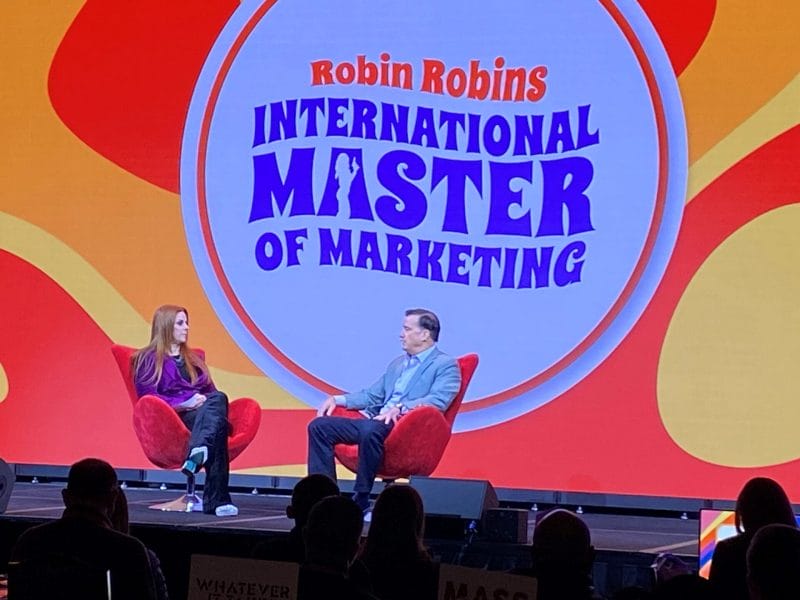It’s no secret that buying or selling an MSP business is a lot like getting married—you have to be in the right stage of life, you have to find the right partner, and it helps if you have things in common with the “in-laws” and your new family members. And similar to any impending nuptials, any missteps—from the initial courtship through the engagement period to the wedding day—can torpedo that trip down the aisle.
According to Canalys, 41% of channel partners in North America were open to acquisition this year. To help you avoid making mistakes that could blow up your deal before the paperwork is signed, MSP Success spoke with two industry experts who have successful M&A experience.
Christopher Vollmond-Carstens (“CVC”) is chief M&A officer at Ntiva, a $100 million private equity-backed MSP that has been expanding through acquisition. Joanna Mirov is senior advisor for M&A at Ntiva, and former owner and CEO of managed services company MXOtech, which Ntiva purchased in 2022. Here’s their take on why deals go bad.
1. You’re not on the same page as your business partner(s)
If you have a decision-making partner or partners in your MSP business, it’s important to hash out everyone’s exit goals and post-acquisition expectations before coming to the table with a potential buyer, advises Vollmond-Carstens.
“Even though they may have worked together for a long period of time, they may be in slightly different life stages, for instance, or have slightly different goals or expectations for wanting to exit out of the business,” he explains.

It’s especially important to be clear on the role the sellers would have if they choose to stay with the acquiring business, he says, because the power and responsibility dynamic may be different. For instance, says Vollmond-Carstens, a buyer may be more excited by one of the partners while the other may be somewhat sidelined after the acquisition.
In addition to having open, honest conversations between the selling partners, Vollmond-Carstens advises they look for a buyer “that can allow each of those individuals to pursue and be successful with their respective goals, so that you don’t have to go into a sale situation where the two owners have to do the exact same thing going forward—they can have different goals and objectives.”
It’s not a one-and-done conversation, either, he says. “As you’re talking to prospective buyers, as you’re moving along through the process, maybe your objectives change or evolve, or there’s some sort of event that has occurred outside of the business that may influence your thinking, whether it’s a family situation or divorce or other things. … It’s vital to have that continued dialogue so that you’re constantly at a place where each of you knows what the other is intending.”
Surprisingly, lack of agreement on price is not usually something that divides partners or kills deals. “It’s always these other things that seem to break the deal,” says Mirov. “Money has not been on top of the list.”
2. You have consistent monthly revenue, but the majority is not MRR
Mirov recounts one MSP selling their company that had submitted their financials to the prospective buyers. The books showed consistent monthly revenue, but later in the process when the buyer took a detailed look at the MSP’s contracts, a large portion of the work was being billed month to month. “A very small portion was under a 36-month contract,” she explains. “The buyer ended up pulling out … because this [monthly billing] was 70% of the business.”

The MSP wasn’t necessarily being deceptive, she adds. A long-term client that you’ve been billing over the years for project work or time and materials “takes on the characteristics of a typical or standard recurring view of revenue,” Vollmond-Carstens agrees. “Sometimes that nuance is one that needs to be described and discussed with a prospective seller because [for the] buyer, particularly one that may be using debt financing or other forms of capital to fund an acquisition, that distinction matters a lot to lenders.”
The concern is there is nothing to prevent a large client walking away after the sale, Mirov adds. “So, the moral of the story here is, make sure that you have a contract for all of the services, or disclose that right away so you’re not wasting 6 to 9 months of your time for the buyer to find that out at the very end,” she says.
3. You don’t have good contracts in place
If you do business based on a handshake and good faith, that won’t fly with a potential buyer. “Back in 2020, we had marched along the path with the [selling] company and through the diligence and discovery effort realized that they didn’t really have contracts in place with their clients,” says Vollmond-Carstens. “They had many long-term clients that were continuing to grow, [and they] continued to have good rapport with the clients, but there wasn’t really anything substantive on paper to provide affirmation and confirmation of the revenue that has come in will continue to come in after the transaction takes place.”
Ntiva paused that particular acquisition effort for 6 to 8 months to give the seller time to get contracts in place with their clients. “Not all of them,” he says, but “it was at least the top 20, top 30, that drove a meaningful portion of the revenue.”
Once the seller did that, Ntiva was willing to resume the conversation and eventually did close the sale. “Just having that measure of certainty around contracts and good terms in those contracts is valuable to ensuring that you’re going to get optimal value for your business,” he says.
4. You didn’t pay your taxes correctly
MSP business owners are technologists, not tax experts, so Vollmond-Carstens recommends enlisting a tax advisor for the intricacies you may not be aware of. “I think it’s important as a small business, particularly as you’re putting yourself in position for sale, to employ the services of a very competent tax advisor to ensure that you have been collecting the appropriate taxes from your clients and you are remitting them to their relevant authorities, and you’ve got the appropriate documentation and corresponding financial books and records to support that effort.”
A buyer who is looking to do a stock transaction or an equity transaction is buying both the assets and the liabilities of that MSP, he explains.
Ntiva recently acquired an MSP that had not effectively managed its tax liabilities—not intentionally but because they did not have a high tax IQ, he notes. While it did not derail the deal, “they’ve got a lot of the money that we’re paying for the business tied up in an escrow right now until we can get the tax situation resolved.”
What would derail a deal, he stresses, is if it was discovered that a seller was “looking to pull an end around on the tax authorities. That’s not someone I want to be doing business with, because they’re likely to want to cut corners elsewhere or have cut corners elsewhere in the operation of their business.”
5. The seller gets cold feet
As a business owner, you’ve put years of sweat equity and devotion into your business, and it’s a big change if you’re not ready or haven’t thought through what’s next. Mirov recounts a recent transaction where that was the case. “They agreed on the price. The contracts seemed right. The financials were accurate. Everything was falling into place, but at the very end … when it came to the roles and responsibilities for the CEO who wanted to remain working, they could not come to an agreement, because the CEO wanted to stay being the face of the company.”
Weeks before the sale was to close, he backed out, Mirov says. “He obviously got some kind of cold feet or just realized that he really loved being in the role that he had.”
Vollmond-Carstens stresses that it’s important to not only talk through beforehand but to formalize what the owner’s role will be after the sale. “Try to have that conversation at the beginning so that you don’t get to a point where you’re just weeks out from close and everyone has already spent a tremendous amount of money on a Q of E [quality of earnings report] and lawyers and tax advisors and everything else.”
6. The deal takes too long to close
To have all these important conversations and get through due diligence, the acquisition process can take 6-12 months. But a deal that takes too long to close can go off the rails, says Mirov, with either the seller or the buyer walking away.
“As they say, time kills all deals, and deals do fall apart because it’s taking too long. It could be that, from the time they [the seller] signed the NDA, they can’t get the financials over because they’re cleaning stuff up. Three months go by when they finally submit the books, or they’re waiting to get this one last contract. They want to make sure that everything’s in place.”
7. The seller loses or gains a big contract or takes their foot off the gas
If a seller loses a big contract before the sale closes, the buyer may lower the offer, Mirov says. “If they were set on getting $5 million or $10 million, boy, they’ve already spent some of that money.”
But if the seller must settle for a lower offer, sometimes they “can’t make peace with that,” she notes.
On the flip side, the seller may have landed a big contract that they’ve been working on for some time and wants to renegotiate a higher price for the transaction, she says.
Until the deal officially closes, Mirov says sellers need to make sure “you’re running your business the entire time, the same way you were before you even engaged in the conversation of selling your company. You don’t want to take your foot off the gas because things happen, service issues come up, you’re not doing as much sales as you’re supposed to, you retired the minute you signed that NDA.”
For the M&A process to end satisfactorily for both buyer and seller, the seller needs to be “making sure that everything is moving and that the company is still strong.”
To read more about how to craft a successful merger or acquisition, go here.









